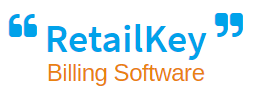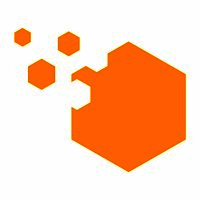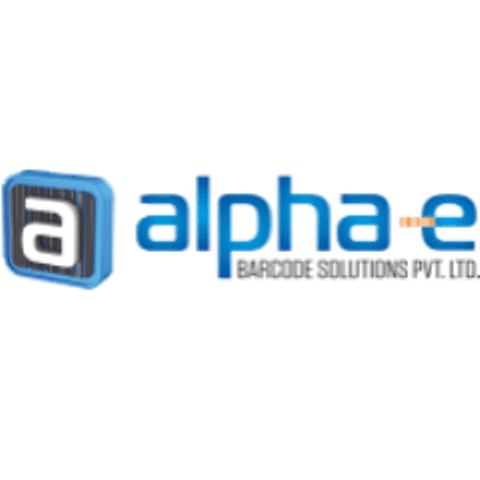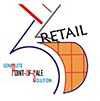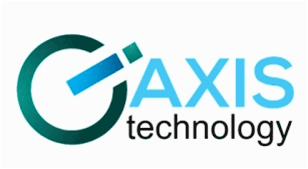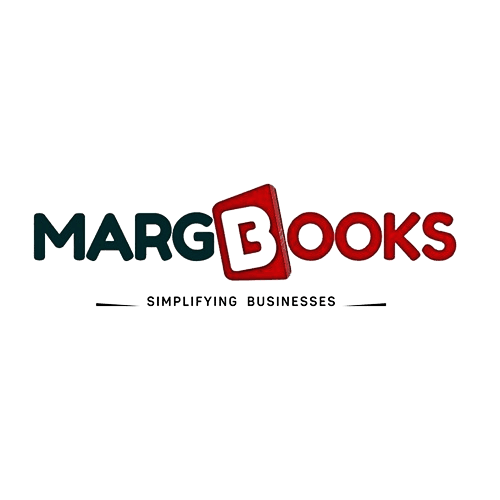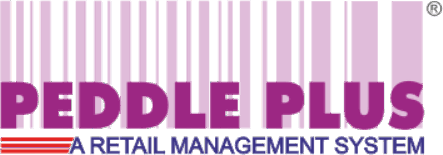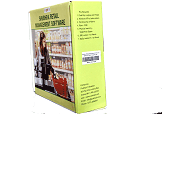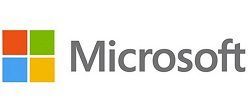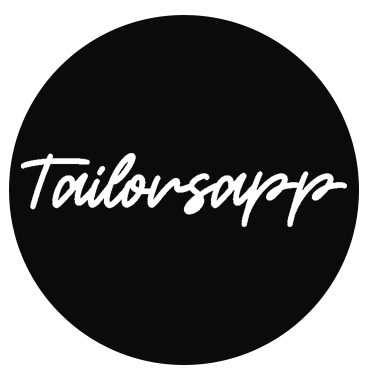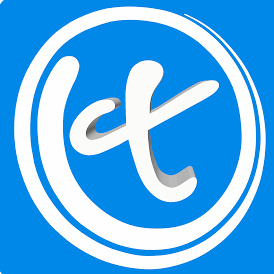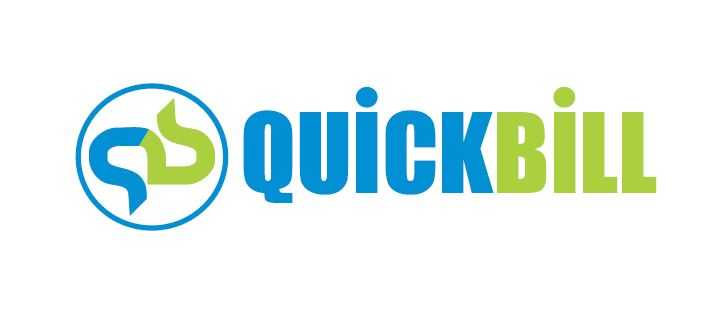Yes, most retail software is now built to be available from numerous devices and platforms. This implies that you can use the software on your desktop computer, laptop, tablet, or smartphone. It is also compatible with several operating systems, including Windows, Mac, and Android. This allows retailers to manage their businesses while on the go, with all data synchronized and updated in real time across all devices.
List of 20 Best Retail Software
Retail Key - the leading invoicing software designed to optimize your business operations. Developed after extensive collaboration with 300 businesses over 13 years, Retail Key offers a seamless and personalized billing solution. Bid farewell to tedi...Read More Retail Key
Rhbus solution for streamlining your ERP system. Our focus is to offer a user-friendly experience while still maintaining the advanced features of modern ERPs. Enjoy a sleek and customizable interface that caters to your unique business requirements,...Read More Rhbus
Ivy Retail Execution solution for optimizing your retail processes. Eliminate the hassle of store setup, inventory management, ordering, and payment collection. Our software guarantees precise reconciliation of product quality and daily collections...Read More Ivy Retail Execution
CRM@MCIAPPS is a business solutions software that revolutionizes your entire business process. Our highly customizable and compatible features cater to every stage of your business operations, ensuring a streamlined and reliable source of information...Read More CRM@MCIAPPS
Magestore POS: the leading point of sale solution for Magento merchants. Developed by experienced Magento experts, this robust software simplifies product and inventory management, order processing, sales tracking, and customer data organization into...Read More Magestore POS
Alpha Retail Billing - the top accounting software for the retail sector. Simplify your accounting processes and create polished invoices and reports in multiple formats. Alpha has everything you need, from managing accounts to generating reports. Sa...Read More Alpha Retail Billing
Growth Retail solution for personalized and cost-effective business management. Our revolutionary software streamlines all retail operations and has been trusted by countless successful businesses. As their valued partner, we take pride in delivering...Read More Growth Retail
SysRetail, the browser-based solution designed specifically for Small and Medium retail businesses. With its user access control feature, managing operations has never been easier. Gain insights and convenience through on-screen, PDF, and Excel repor...Read More SysRetail
UniRetail is the ideal software solution for efficiently managing your retail store in Mumbai. Its affordable cost and speedy implementation will have you running in a flash. Our intuitive user interface, effortless installation, and straightforward...Read More Uni Retail
Oaxis Retail Management is a online Point of Sale solution for retail businesses. Say goodbye to paper books and hello to digital account management with our advanced features. With a virtual store and streamlined operations, this software helps esta...Read More Oaxis Retail Management
MargBooks is a billing and accounting software developed by Marg ERP Ltd., is a cloud-based solution designed for easy management of business operations from any device and location. It allows for smooth financial management, expense tracking, and ef...Read More Marg Books
Peddle Plus is a GST compliant billing solution for retailers in India. This user-friendly software is perfect for businesses of all sizes, whether operating from a single PC or multiple outlets nationwide. With its unmatched flexibility and efficien...Read More PEDDLE PLUS
Experience seamless retail management with Shubhra Retail Management software solution for all your offline management needs. This all-in-one tool offers features like billing, inventory management, user authentication, and advanced reporting capabil...Read More Shubhra Retail Management
Cybertill is a retail solution for successful retailers. Our software provides access to real-time information, allowing retailers to make informed decisions that drive growth and success. With its unique features, Cybertill empowers retailers to sta...Read More Cybertill
Microsoft Dynamics POS for Retail: a comprehensive software solution for enhancing customer engagement and streamlining store operations. With features for managing channels, orders, marketing, and business intelligence, as well as back-office tasks...Read More Microsoft Dynamics POS
eHopper - a dynamic and adaptable POS solution built for the unique needs of small businesses across a range of industries. Its cloud-based platform offers a comprehensive set of tools, including inventory management, marketing features, and comprehe...Read More eHopper POS
Tailorsapp is a ERP solution for businesses in the fashion, bespoke, lifestyle, retail, and manufacturing industries. Our software simplifies inventory management, materials tracking, production processes, job worker management, barcoding, and billin...Read More Tailorsapp
Twirll is a dynamic platform that revolutionizes business growth through automation. Our cutting-edge tools for operations and marketing effortlessly merge several sales channels, providing a comprehensive solution. Elevate your business with Twirlls...Read More Twirll
Retailware Garment is a retail software solution for garment stores and retail businesses. Our user-friendly barcode system is specifically designed for Microsoft Windows, seamlessly managing inventory, sales tracking, and overall performance. Upgrad...Read More Retailware Garment
QuickBill is a invoicing solution for businesses of all sizes. Our state-of-the-art software offers advanced inventory management, efficient billing, customizable barcode design, financial accounting, service billing, and user-friendly SMS and email...Read More QuickBill
Learn More About Retail Software
- What Is Retail Software?
- What Are The Recent Trends In Retail Software?
- Benefits Of Using Retail Software
- Important Factors To Consider While Purchasing Retail Software?
- What Are The Key Features To Look for In Retail Software?
- Why Do Businesses Need Retail Software?
- How Much Time Is Required To Implement Retail Software?
- What Is The Level Of Customization Available In Retail Software?
- Which Industries Can Benefit The Most From Retail Software?
- Conclusion
What Is Retail Software?
Retail software is specifically intended to help businesses manage their daily operations and activities. It includes a variety of features and tools for inventory management, sales tracking, customer data management, and more. One of the primary advantages of adopting retail software is its capacity to streamline and automate many activities, saving retailers time and effort while enhancing efficiency.
This can lead to higher productivity and revenues for firms of all sizes. When trying to buy retail software, there are a few important things to consider. First and foremost, the software should have an easy-to-use and understandable interface. It should also have strong inventory management features, such as the ability to monitor stock levels, set reorder points, and produce automatic purchase orders.
Another important factor to consider is a reliable point-of-sale system that can handle transactions, process payments, and generate thorough sales records. Integration with numerous payment methods is also required to offer a smooth and convenient checkout experience for customers. Furthermore, retail software should have capabilities such as customer relationship management, employee management, and marketing tools to assist merchants in better understanding and engaging with customers, managing their workforce, and efficiently promoting products.
What Are The Recent Trends In Retail Software?
Retail software has advanced and innovated in recent years, revolutionizing how retailers operate and manage their businesses. With the development of e-commerce, mobile shopping, and changing consumer behaviors, the retail industry has seen an increase in the use of retail software solutions to improve operational efficiency and customer experience.
Let's explore, we will look at recent trends in retail software that every retailer should consider when choosing a solution for their organization.
1. Cloud-Based Solutions: As retailers seek greater flexibility and remote access, they are increasingly turning to cloud-based retail software solutions. These software solutions are attractive to merchants of all sizes because they are scalable, cost-effective, and provide secure data storage.
2. Omnichannel Capabilities: The advent of omnichannel retailing has resulted in the integration of several sales channels, including brick-and-mortar stores, e-commerce websites, and social media. Retail software with omnichannel features enables businesses to manage all of their sales channels from a single platform, delivering a seamless and consistent shopping experience for customers.
3. AI and Machine Learning Integration: Retail software is progressively incorporating artificial intelligence (AI) and machine learning (ML) to create tailored consumer experiences, better inventory management, and optimize pricing strategies. These tools enable merchants to evaluate data and make data-driven decisions for their businesses.
4. Mobile POS: Retailers are increasingly embracing mobile point-of-sale (POS) systems, which allow for checkout and payment from anywhere on the store floor. With the development of mobile purchasing, merchants are using mobile POS to enable in-store mobile payments and improve the whole shopping experience for customers.
5. Data Analytics and Business Intelligence: Modern retail software includes advanced data analytics and business intelligence technologies that enable merchants to get useful insights into their operations. These insights enable merchants to make data-driven decisions, such as estimating customer demand and spotting patterns, to improve their overall success.
6. Personalization: Retail software is introducing personalization features to meet the specific demands and tastes of individual customers. These elements include targeted marketing campaigns, product recommendations, and loyalty programs, which assist merchants in strengthening customer connections and increasing customer retention.
Benefits Of Using Retail Software
Retail software is an invaluable resource for retail enterprises of all sizes. It provides a variety of features and benefits that can considerably increase the efficiency and profitability of a retail enterprise.
Let's explore, we'll look at the primary benefits of retail software and how it can help your business.
1. Streamlined Inventory Management: One of the most significant advantages of adopting retail software is the ability to streamline inventory management. Retail software's extensive tracking and reporting tools enable businesses to track inventory levels in real time, identify fast and slow-moving items, and automatically refill stock as needed. This reduces the need for human inventory checks and helps to minimize overselling or overstocking, resulting in time and cost savings for the firm.
2. Improved Customer Experience: In today's competitive retail environment, customer experience is critical. Retail software may enhance the overall consumer experience by ensuring a smooth and effective purchasing procedure. Retail software simplifies customer shopping and engagement with features like as integrated POS systems, mobile payment alternatives, and loyalty programs.
3. Accurate Sales And Performance Tracking. Retail software allows firms to effortlessly track sales and performance statistics, such as revenue, profit margins, and best-selling products. This information can be utilized to make informed business decisions, such as altering price strategies, finding high-demand products, and monitoring sales success over time. It also reduces the necessity for manual record-keeping, which lowers the likelihood of human error.
4. Integrated Marketing And Promotions. Many retail software packages have marketing and promotion functions, which enable businesses to design customized campaigns to attract and keep customers. These features may include email marketing, social media integration, and targeted offers based on consumer information. Retail software allows firms to efficiently reach their target audience and increase sales.
5. Cost Savings And Improved Efficiency Retail software may help firms save time and money by automating operations like inventory management, sales tracking, and marketing. Businesses that improve their efficiency might reallocate resources to other parts of their operations, increasing production and profit.
6. Easy Scalability Retail firms are continuously evolving, and their software must keep up with them. Retail software is scalable, allowing firms to add new goods, locations, or features without affecting operations. This makes it an affordable option for businesses of all sizes, from little boutiques to major retail chains.
Important Factors To Consider While Purchasing Retail Software?
When purchasing retail software, there are numerous critical variables to examine to guarantee that you end up with a system that fulfills your company's goals while maximizing your return on investment.
From features and functionality to compatibility and support, here are the most important considerations to consider before making a purchase.
1. Business Objectives And Goals: Before shopping for retail software, you should first determine your company's objectives and goals. What specific problems or tasks do you want to solve using this software? Do you want it to assist you with inventory control, sales tracking, or client relationship management? Understanding your aims and objectives will allow you to limit down your selections and avoid acquiring software that does not meet your requirements.
2. Features And Functionality: Once you've determined your business requirements, you can begin comparing the features and functionality of various retail software options. Some important features to look for are point-of-sale systems, inventory monitoring, reporting and analytics, and interaction with other technologies. Consider what features are critical to your business and prioritize them accordingly.
3. Usability: Because retail software can be complex, it is critical to select a program that is simple to use and navigate. A clumsy or unclear UI can cause annoyance and waste time and resources. Look for software that provides a free trial or demo so you can try it out and see if it's easy for you and your team to use.
4. Compatibility: Before making a purchase, make sure the retail program is compatible with your current systems and tools. This covers both hardware (point-of-sale devices) and software (accounting or inventory management systems). Choosing software that interacts seamlessly with your existing systems will help you save time and effort in the long term.
5. Scalability: Consider your company's future expansion and how the software will support it. Will it be able to satisfy your needs as you grow and add new locations or products? It's critical to select software that can scale with your company to avoid having to convert to a different system in the future.
6. Security: Because retail software may contain sensitive information, such as customer data and financial records, security must be prioritized while purchasing. Look for software that has encryption and data protection measures, as well as frequent upgrades and maintenance to combat any security risks.
7. Customer Support: Even with the most user-friendly software, there may be moments when you require assistance or run into technical problems. That is why it is critical to assess the amount of customer assistance provided by the software vendor.
Look for a company that offers dependable and accessible customer care, whether via phone, email, or live chat. By taking these essential elements into account, you can make an informed decision about selecting retail software that will fulfill your company's goals and contribute to its success. To select the greatest fit for your business, investigate several possibilities, read reviews, and take advantage of free trials or demos.
What Are The Key Features To Look for In Retail Software?
When shopping for retail software, there are a few crucial elements to examine to guarantee that you're making the best investment for your company. These features not only help to streamline your operations, but they also improve your clients' buying experience. After conducting extensive study and analysis of numerous retail software choices, we have selected the top qualities you look for when making your pick.
1. The Point of Sale (POS) System: At the heart of any retail business, the POS system is an important component to look for in retail software. It enables you to execute transactions fast and efficiently, manage inventory, and monitor sales statistics. Make sure the program has an easy-to-use interface, accepts several payment methods, and can be integrated with a variety of hardware devices.
2. Inventory Management: Keeping track of inventory is critical for every retail operation. Look for retail software that has real-time inventory updates, automated stock replenishment, and the ability to create alarms for low stock levels. This functionality will allow you to avoid stockouts, decrease surplus inventory, and increase profitability.
3. Customer Management: A reputable retail software should include a customer management tool that allows you to save and organize customer information, track purchase history, and personalize the shopping experience. Some software even includes customer loyalty programs and marketing capabilities to assist you keep and attract new consumers.
4. Reporting and Analytics: Detailed insights into your company's performance are essential for making informed decisions. Look for retail software that can generate customisable reports and analytics, such as sales reports, inventory reports, and customer data analysis. These features will assist you in identifying patterns and opportunities for improvement.
5. Omnichannel Capabilities: With the development of internet purchasing, having retail software with omnichannel capabilities might help you get an advantage over your competitors. It should be compatible with your e-commerce website, social media channels, and offer a consistent shopping experience across all platforms.
6. Integration with Accounting and Marketing systems: To simplify your operations, search for retail software that can work with your current accounting and marketing systems. This function saves you time and effort by automatically synchronizing data across many platforms and reducing the possibility of errors.
7. Scalability and Customization: As your company grows, your retail software should be able to adapt and grow alongside it. Look for software that supports scalability and modification to match your specific business requirements.
Why Do Businesses Need Retail Software?
Businesses today work in a fast-paced, highly competitive climate in which every area of their operations must be optimised in order to stay ahead. Retail management is one of the most important aspects of a successful firm, and as the retail industry becomes more complicated and diverse, conventional manual management approaches are no longer effective. Here is where retail software comes into play.
Retail software is a specialized system that assists businesses in managing and streamlining all aspects of their retail operations, including inventory management, sales monitoring, consumer data analysis, and workforce management. It is a comprehensive solution that gives businesses the tools they need to manage their retail activities efficiently and effectively. One of the primary reasons why organizations use retail software is to improve productivity and efficiency.
Retail software allows organizations to automate time-consuming manual operations like inventory tracking and order processing, freeing up personnel to focus on more strategic tasks. This not only saves time but also decreases the possibility of human error, which may be costly to a firm. Furthermore, retail software offers real-time data and insights, allowing firms to make more educated decisions.
Businesses can use capabilities like sales forecasting and customer behavior analysis to spot trends and patterns, understand their customers' requirements and preferences, and adapt their tactics as needed. This can increase revenue and consumer happiness. Another important feature of retail software is its capacity to enhance the overall consumer experience.
Businesses can provide their customers with a seamless and personalized purchasing experience by implementing features such as loyalty programs, targeted promotions, and multi-channel selling. This not only improves customer retention but also draws new consumers via favorable word-of-mouth. Finally, retail software enables organizations to comply with rules and industry norms. Businesses may assure compliance with regulatory standards and correct records by using services such as secure payment processing and inventory management.
How Much Time Is Required To Implement Retail Software?
The time required to implement retail software varies according to the program, the size and complexity of your organization, and the level of customization necessary. On average, it can take between a few weeks and a few months. The first step in deploying retail software is usually a consultation with the software vendor to assess your company's needs and choose the best solution for you.
This may take a week or two, depending on your availability and the provider's schedule. Once you've decided on a software, the implementation phase begins. This includes data migration, software installation, and integration with current systems. This stage can take 2-4 weeks for a small organization and up to 3 months for larger businesses with more complex data and processes.
Following the initial setup, there will usually be a testing phase to confirm that the program is working properly and meets your business requirements. This may take an extra 2-4 weeks. Finally, you and your team will receive training and onboarding to become familiar with the new program and its capabilities. This can take up to two weeks, depending on the software's complexity. The implementation of retail software might take anything from 4 to 16 weeks.
Keep in mind that this is a rough estimate that may change depending on a variety of circumstances. It is usually best to collaborate closely with the software vendor and allow enough time for a smooth and successful implementation. This will ensure that you and your team can use the program effectively and to its full potential to benefit your organization.
What Is The Level Of Customization Available In Retail Software?
Retail software provides a variety of functions to assist firms in managing their day-to-day operations and increasing overall efficiency. One major feature that distinguishes retail software from general business software is its level of customisation. Customization enables firms to adjust the software to their individual needs and processes, making it an invaluable tool for optimizing operations.
There are three levels of customisation accessible in retail software: off-the-shelf, configurable, and fully customizable. Off-the-shelf retail software is pre-built and provides a basic set of capabilities that may not meet every company's specific needs. However, it is a more affordable option for smaller organizations or those with simpler processes.
Configurable retail software provides increased flexibility by allowing firms to alter settings and functionalities inside the software, but only within specified constraints. This solution is appropriate for firms with specialized needs or procedures that require minimal software updates. Fully configurable retail software is the most personalized solution. It allows enterprises to construct and design their own workflows, processes, and features within the platform.
This level of customization is most appropriate for larger firms with complicated operations that cannot be handled by off-the-shelf or adjustable software. Furthermore, the extent of customization in retail software is determined by the deployment technique used. On-premise software offers for more extensive customisation choices because it is installed and managed directly by the organization.
Cloud-based software, on the other hand, provides a more standard set of capabilities and has less customization choices because it is handled by the software provider. When deciding on the extent of customization for retail software, organizations should examine their needs, budget, and software scalability. They should also evaluate the time and resources needed to create and maintain the desired level of customization. It is critical to establish a balance between customizability and practicality to ensure that the software fulfills the demands of the organization without being overly complex or expensive.
Which Industries Can Benefit The Most From Retail Software?
Retail software is a versatile and important tool for organizations across all industries. Retail software is critical for handling inventory, sales, and customer data efficiently, whether in tiny local businesses or large global corporations. But which sectors will benefit the most from employing retail software? Let's go exploring.
1. Retail Stores: It goes without saying that retail establishments, whether physical or online, may tremendously benefit from employing retail software. Retail software, which includes functions like sales tracking, inventory management, and customer relationship management, can help store owners optimize their operations and increase profits.
2. E-commerce Businesses: With the rise of online purchasing, e-commerce companies have emerged as key players in the retail industry. Retail software is an indispensable tool for these firms. It enables easy sales management across different platforms, tracking of orders and customer data, and connectivity with other critical tools such as shipping and accounting software.
3. The Restaurant And Food Service Industry: Retail software can also tremendously help the food service industry, which includes restaurants, cafes, and catering enterprises. Table and order management, inventory tracking, and menu modification all help to improve the efficiency and organization of a food service operation.
4. Beauty And Wellness Industry: Salons, spas, and wellness centers can use retail software to organize appointments, track inventory, and enhance the customer experience. More modern software may incorporate features such as online booking and marketing tools to assist these enterprises in growing.
5. Healthcare Industry: Medical clinics and pharmacies can use retail software to manage appointments, prescriptions, and patient information. Advanced features such as telemedicine and digital healthcare records can improve the overall efficiency and quality of patient care.
6. Hospitality Industry: Hotels, resorts, and other hospitality companies can benefit from retail software that connects with their property management system. This enables for easy handling of bookings, room pricing, and guest information, making the hotelier's job easier.
Conclusion
To summarize, choosing the correct retail software is critical for any business's success. With the ever-changing retail landscape and rising customer expectations, investing in a comprehensive and efficient IT solution is critical. When considering acquiring retail software, it is critical to undertake extensive research and understand your company's unique requirements.
Consider your budget, industry, store type, and desired characteristics before making a decision. With so many options available on the market, it might be difficult to select the best software. That is why our buyer's guide provides a thorough analysis of the essential features, pros and cons, and pricing information for some of the best retail software systems.
You may make an informed decision by assessing the capabilities of each software and understanding your company's needs. Remember to evaluate the software's scalability and integration possibilities, as your firm may expand and require extra features in the future. Furthermore, it is critical to select a renowned and trustworthy vendor who can give enough support and guidance during implementation and training.
Don't forget to check reviews and seek for recommendations from other firms who use the software. Investing in the proper retail software may boost efficiency, improve the customer experience, and generate sales and growth for your company. So, take the time to carefully consider your options and select a solution that matches your budget and satisfies your company's specific requirements. We hope this buyer's guide has been useful in your decision-making process.
Retail Software FAQ's
Can Retail Software Be Accessed Across Multiple Devices And Platforms?
Is Retail Software Future-Proof And Adaptable To Emerging Technologies Like AI, Blockchain Or IoT?
Yes, retail software is always improving to keep up with emerging technologies such as artificial intelligence (AI), blockchain, and IoT. These technologies have the potential to significantly improve the functionality and efficiency of retail software, making it more future-proof and adaptable.
Retail software is getting increasingly powerful and versatile, with features like predictive analytics, automated inventory management, and improved supply chain procedures. This ensures that businesses of all sizes can adapt to the continually changing retail scene.
Is There A Free Trial Offered To Assess Retail Software Before Committing?
Yes, many retail software suppliers provide free trial periods so that potential clients can evaluate the program before making a commitment. This enables organizations to test the software's features and functioning to see whether it fits their requirements and is compatible with their processes. It also provides hands-on experience and a greater knowledge of how the software may help the organization. Make sure to use these free samples to make an informed decision.
Does Retail Software Offer Data Security Features And Meet Regulatory Compliance Standards?
Yes, most retail software suppliers focus data security and ensure that their products meet regulatory compliance requirements. They protect critical client and financial data using features such as encryption, secure cloud storage, and frequent security updates.
Retail software also includes features like audit trails and access controls, which help organizations comply with requirements such as PCI DSS and GDPR. This guarantees that your organization operates safely and securely while adhering to industry standards.
Can Retail Software Integrate Seamlessly With Existing Tools And Platforms?
Yes, most Retail Software solutions are designed to work smoothly with existing tools and platforms. This enables for a smooth transition and ensures that all of your systems work together effectively. Retail software can work with a variety of systems, including accounting, inventory management, and customer relationship management (CRM) applications. This connectivity not only saves time, but also gives you a comprehensive perspective of your operations, making it easier to manage and assess your company.

